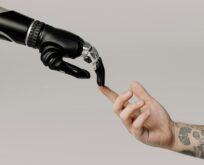In the fast-paced world of engineering, where innovation reigns supreme and deadlines constantly loom overhead, it’s no surprise that AI and automation have become hot topics of discussion. As a leading recruitment agency specialising in engineering jobs across the UK, we have inevitably given a lot of thought to the implications of AI and automation in engineering, including the resounding question, “Will AI take over engineering jobs?”
So, what exactly do these buzzwords mean for the future of our field? Are they friend or foe? Let’s dive in and explore.
First things first, let’s demystify AI (artificial intelligence) and automation. If you’re already familiar with the concepts, feel free to skip ahead! AI refers to the simulation of human intelligence in machines, enabling them to perform tasks that typically require human intelligence, such as problem-solving, pattern recognition, and decision-making. On the other hand, automation involves the use of technology to perform repetitive tasks automatically, without human intervention.
Now, you might be wondering, “How do these technologies fit into the world of engineering?” Well, the answer is: quite seamlessly. AI and automation have already begun to revolutionise various aspects of our field, from design and manufacturing to maintenance and beyond. Amazon CEO and billionaire Jeff Bezos famously said that we are currently “in the golden age of AI,” and you better believe that the engineering industry has no intentions of being left behind.
Take design optimisation, for example. With the help of AI algorithms, engineers can analyse vast amounts of data and simulate different design scenarios to identify the most efficient and cost-effective solutions. This not only speeds up the design process but also leads to more innovative and sustainable solutions.
In manufacturing, automation plays a crucial role in streamlining production processes and improving efficiency. From robotic arms assembling complex components to automated quality control systems ensuring product consistency, automation has transformed the way we manufacture goods.
Now, as excited as we are to see the engineering world poised for new innovative heights, our job is to ask, what about the human element? Are AI and automation destined to replace us mere mortals in the engineering world? We have noticed this question looms large in discussions about the future of engineering jobs in the UK and beyond. We at Holt Engineering are pleased to report back that we don’t predict this to happen – with a small caveat. While it’s true that these technologies can handle certain tasks more efficiently than humans, they still lack the creativity, intuition, and adaptability that make us uniquely human.
A professional’s intuition, refined through years of experience, enables them to discern nuances and intuitively sense when something is right in ways AI could never replicate. In engineering, this manifests as the ability to physically touch something and instinctively feel if it is ‘right’ or not, developed through experiences of success and failure. AI also operates within the confines of 1s and 0s, which can be restrictive in its own right. Engineering often demands creativity, adaptability, and subjective decision-making, qualities at which humans excel and Binary AI will always struggle to master. We are also aware of the high value that the engineering industry places on tradition and the old-school way of doing things. While AI can streamline processes and offer efficiency, it cannot replace the importance of maintaining excellence through traditional methods.
Instead of viewing AI and automation as threats to our livelihoods, we should try and embrace them as valuable tools in the engineering toolkit. Now, for that small caveat – while we don’t predict these new technologies to wipe out human participation in the industry, we recommend that everyone be open to upskilling, reskilling, and adapting slightly in their approach to the job responsibilities in traditional engineering roles. By using someone like Holt we can offer advice help and advice in doing these things. Complex problem-solving, adaptability and customisation, collaboration and communication, ethical considerations, high-level decision-making, and maintenance and updates are all responsibilities that cannot be replaced with AI.
It’s also important to highlight that there can be no certainty when looking ahead to the future; there are no guarantees, and we make these predictions by taking into account a range of variables. We can draw comparisons from previous world-changing technology like the dawn of the internet, but AI is a beast in its own right, and even the experts will agree that nobody is completely sure of what the development of this tech will mean for the future. However, by leveraging AI and automation, engineers can enhance problem-solving capabilities, increase productivity, and unlock new possibilities that were previously unimaginable – how we as people use our unique human traits to complement and give an edge to these technologies is a discussion that is vital in the immediate years to come.
Of course, with great power comes great responsibility. As the world we know changes, it’s everybody’s duty to ensure that AI and automation are used ethically and responsibly. This is a job in itself that only humans should be entrusted with.
In conclusion, the future of engineering is bright, with AI and automation leading the way to new frontiers of innovation and discovery. By embracing these technologies, engineers can continue pushing the boundaries of what’s possible and shape a better world for generations to come – we just recommend coming to work with an open mind and a continued hunger to learn and adapt.
Whether you’re a seasoned professional or just starting your career in engineering, understanding what AI and automation might mean for your career progression is essential. Contact us today to explore engineering job opportunities tailored to your skills and aspirations.
< back to other articles


